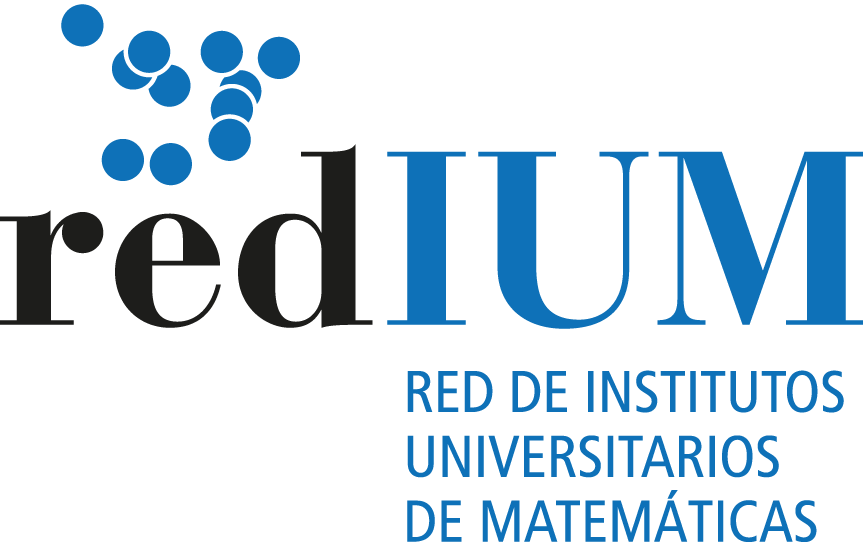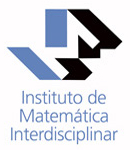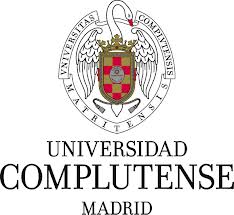- Programmes
Modeling, Analysis, Control and Simulation in Science and Engineering
Brief description:
Most of the models the group is dealing with are given by nonlinear partial differential equations PDEs (purely deterministic or, sometimes, involving some stochastic terms).
A first set of aims of this Program deals with mathematical intrinsic techniques like the modelisation of complex systems through many different techniques: nonlinear analysis, homogenization of nonlinear PDEs, averaged process in nonlinear PDEs, decomposition methods for Numerical Analysis, stochastic equations, integro-differential equations, fractional equations, etc. These techniques are very powerful and generic tools that may find unexpected future applications.
Among the second block of aims consists of the application of the previous techniques to some of the above mentioned Prioritary Research Lines in the Regional, National and International calls such as, for example, Modelisation and Simulation of the Earth Climate System, Modelisation and Simulation of Elementary Particles and High Energy Physics. Applications to many other fields as, for instance, Chemical Engineering, Genetics or Economics are also regarded as future goals.
The last block of searches is the application of our techniques to problems Modelling and Simulation for Food Technologies, Medical Images and their processing.
Thus, the wide range of application goes from advance topics of the basic science (like Elementary Particles or Earth Sciences) to new technological fields with high sociological consequences (like Nuclear Fusion, Food Technologies, Animal Health or Medical Images).
Website: http://www.mat.ucm.es/momat/
http://www.ams.org/mathscinet/search/publications.html?pg1=IID&s1=57710
http://www.ams.org/mathscinet/search/publications.html?pg1=IID&s1=614471
Aims of the program:
- Mathematical models for Lithiumion batteries in multiple portable electronic device:A problem of the models is that they need several electrochemical parameters whose values are not easy to obtain. An aim of program is to carry out a mathematical study of these models and to develop a methodology in order to identify some of these parameters.
- Ecological problems related to polluted water: Mathematical modeling, analysis and numerical simulation of systems arising in various application fields such as population dynamics, ecology, phase transitions and flame propagation, as well as the transport of contaminants in aquifers.
- Patterns in Complex Reaction Diffusion Systems: Many problems are characterized by the presence of moving interfaces. Space-time phenomena giving rise to fronts and interfaces are central issues in many contexts of Science and Technology. As a matter of fact, the analysis and control of interfaces is one of the key issues of the European ITN project Fronts and Interfaces in Sciences and Technology linking 8 teams of universities of 8 countries and two industrial partners (Guigues in France and Siemens in Germany), coordinated by Prof. J. I. Diaz from UCM.
- High-pressure processes and Food Engineering: Significant issues are modeling and simulation of protein behaviour under high pressure processes; optimization of high pressure - moderate temperature processes in Food Technology (for instance for enzyme inactivation and reduction of microbial population); modeling and simulation of freezing processes at high pressure; identification of parameters involved in the above models by solving mathematical inverse problems with the help of experimental data.
- Animal epidemics: Topics to be addressed include modeling and simulation of Epidemics of Classical Swine Fever Virus by means of a spatial-stochastic model to evaluate transmission, both within herds and between them; modeling the spread of animal diseases transmitted by vectors (i.e., organisms, often invertebrate arthropods, that transmit a pathogen from reservoir to host) as the blue tongue disease; and development of a professional software so simulate the different scenarios and the risk of animal epidemics related with the problems considered.
- Controllability of non-linearitzables problems: To show local controllability near trajectories for different PDEs which are not linearizatbles in these trajectories.
- Cessation of the initial and random influences in finite time to stochastic and deterministic fast parabolic equations: study of the cessation of the initial and random influences after a stopping time in the solutions of a stochastic nonlinear problem with a random forcing term involving a sequence of independent real standard Brownian motions on a filtered probability space.
- Schrödinger and Ginzburg-Landau non-linear Systems: An aim is to show that if the singularity of the nonlinear potential occur for null values of the unknown then a phenomenon of localization of the support appears. The effects of the presence of memory terms in equations with delay will be also studied.
- Models of systems of equations of nonlinear PDEs with different special dimension.
- Very weak solutions of PDEs and singular degenerate problems.
- GeodynamicsModels.
- Mathematical analysis of the total variation based denoising problem: total variation flows.
- Stochastic and deterministic fast parabolic partial difential equations.
Researchers: J. Ildefonso Díaz Díaz (Full Professor, Fac. Math. UCM)
Ángel M. Ramos del Olmo (Associate Professor, Fac. Math.UCM)
Gregorio Díaz Díaz (Full Profesor, Fac. Math.UCM)
Sixto Álvarez Contreras (Associate Professor, Fac. Chemistry UCM)
J. Antonio Infante del Río (Associate Professor, Fac. Math.UCM)
Benjamín Ivorra (Asistant Teacher, Fac. Math.UCM)
José Mª Rey Cabezas (Associate Professor, Fac. Chemistry.UCM)
Emmanuele Schiavi (Associate Professor, URJC)
José M. Vegas Montaner (Full Profesor, UCM)
External collaborators: H. Brezis (Rurgers University, USA), Roland Glowinski (University of Houston, USA), J.M. Rakotoson (Iniv. Poitiers), J. Hernández (Univ. Autónoma de Madrid), C, Cázquez (Univ. a Coruña), A. Fowler (Limerik Univ., Ireland), E. Sánchez-Palencia (Univ. Pierre et Marie Curie), S. N. Antontsev (Univ. Lisboa), P. Begout (Univ. Toulouse), Susana Gómez Gómez (Universidad Nacional Autónoma de México), Alain Rapaport and Jérôme Harmand (Institut National de Recherche en Agronomie, France) Profs. Hector Ramírez Cabrera and Pedro Gajardo (Universidad de Chile), several research groups from CSIC (National Council for Scientific Research) and INTA (National Institute for Aerospace Technology), Companies: Esteban Espuña, S.A. and NC Hyperbaric, Criovac,
- Last News
- Tribuna Complutense. En la ciencia y en la vida, todo está escrito en matemáticas (artículo sobre el curso de verano "Matemáticas ¿para qué?"). 3rd July 2017. Read more
- RedIUM
 IMI is a member of RedIUM, Red de Institutos Universitarios de Matemáticas. See List of members. See official website.
IMI is a member of RedIUM, Red de Institutos Universitarios de Matemáticas. See List of members. See official website. - Ph.D. programsIMI researchers are currently involved in the following Ph.D. programs in Mathematics:


